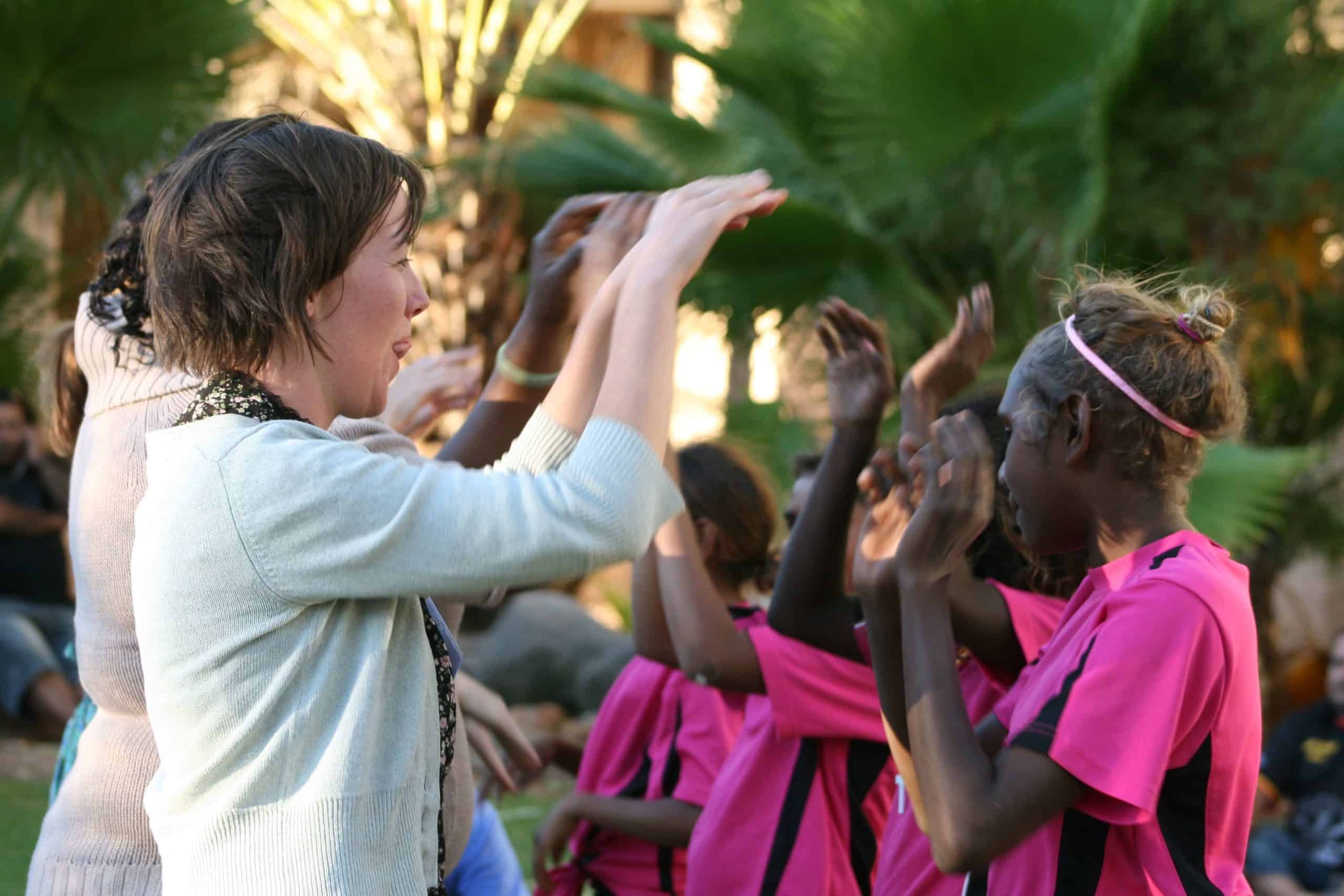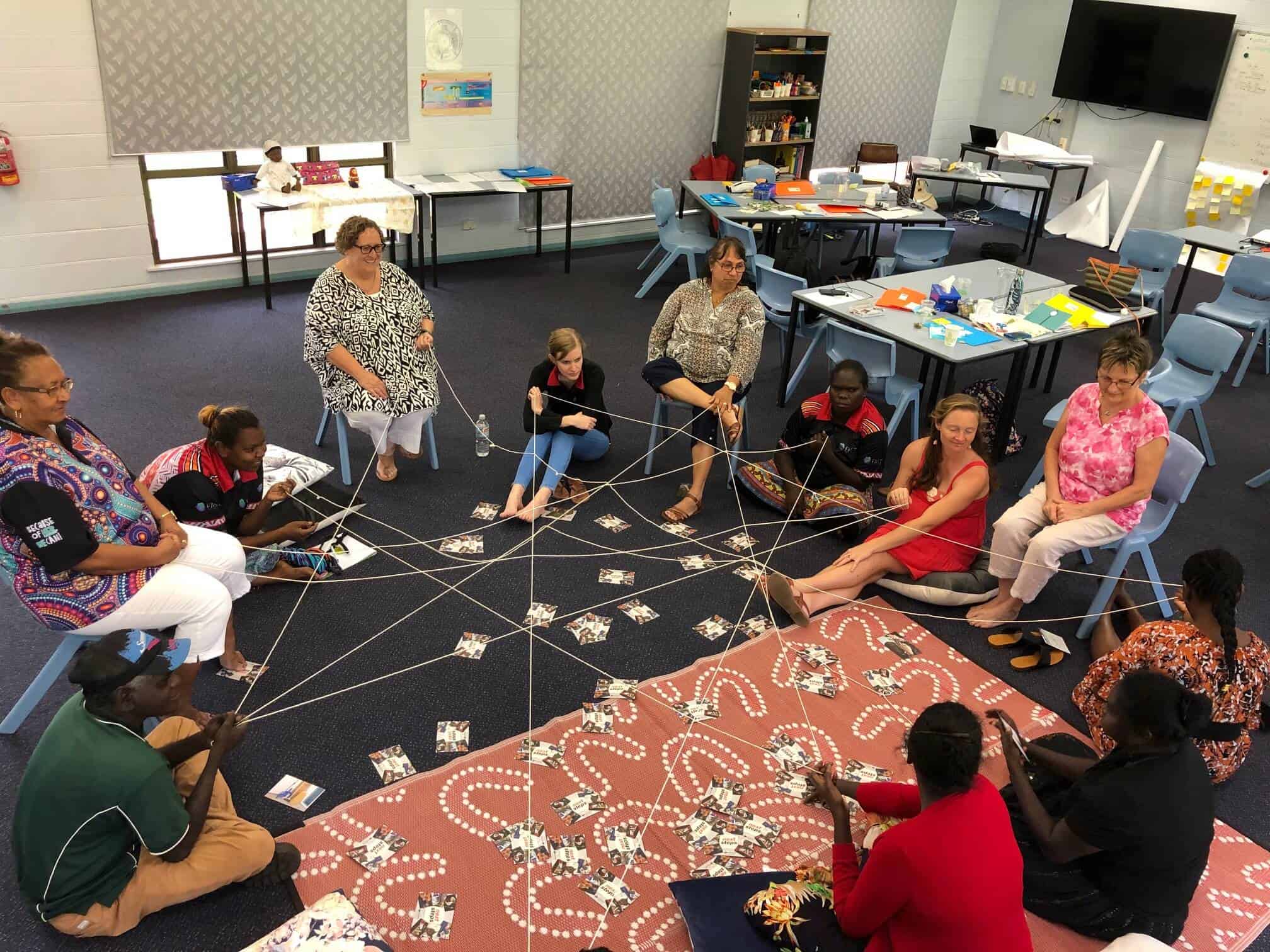Children & Young People
All children deserve to be safe, treated with dignity and respect, and be nurtured to grow to their full potential
Opportunity for Change
In 2017 the Royal Commission into the Protection of Children in the Northern Territory handed down its report, finding systemic failures to deliver good outcomes for children and their families. The Royal Commission’s report provided an opportunity to create significant positive reforms to change the lives and outcomes of children in the NT.
In response to these findings, significant improvements have been made to the care and protection and youth justice systems, and several key areas of reform have commenced. In response to one of the Royal Commission’s recommendations, the Productivity Commission conducted a study into government expenditure in the NT on children and family services aimed at preventing harm to children. The findings from this report and subsequent recommendations provide further pathways to achieve lasting change and improved safety and well-being outcomes for children in the NT.
The NT Government’s commitment to implement the Royal Commission’s recommendations is outlined in Safe, Thriving and Connected. It is vitally important that the NT Government maintain commitment to implementing the reform program in full.
Better Outcomes for Children in the NT
The NT Government committed to a whole-of-government response to support vulnerable children, families and communities, and has made significant improvements to the child protection and youth detention systems since 2017. However, Aboriginal children continue to be over-represented in both systems, and until children and families across the NT have equitable access to universal services, harm prevention services, and early and targeted supports, these numbers will numbers will not change. As outlined in the Productivity Commission’s report, the largest proportion of funding for services directly relevant to the prevention of harm to children is allocated to statutory child protection services. NTCOSS wants the approach to children and families to focus on services that strengthen families and support children to remain with their families, with equitable investment in place-based services for regional and remote areas.

Evidence supports the importance of participation by Indigenous peoples across the world, and self-determination in service design and delivery in achieving positive outcomes for Indigenous children and families. However, despite considerable commitments to increase the role of Aboriginal community-controlled child protection and family support services, service delivery continues to be dominated by non-Indigenous service providers in the NT. The 2019 Family Matters Report found that Aboriginal community controlled organisations in the NT received just 2.4% of funding spent on child protection, out-of-home care (OOHC), and family support services.
Accordingly, NTCOSS calls for the NT Government to continue its work in transitioning OOHC from Territory Families to the non-government sector, with investment proportionate to the engagement of Aboriginal families within the care and protection system. NTCOSS supports the recommendation by the NT Productivity Commission report that when commissioning children and family services primarily targeting Aboriginal people, the Commonwealth and NT Governments should give preference to service providers that have the capacity to deliver culturally appropriate services. Aboriginal community-controlled organisations must be adequately resourced to build capacity, promote local governance and economic participation, and achieve better outcomes for Aboriginal children and their families.
Family Involvement in Decision Making
Where a child enters the care and protection system, the system should support families and children to thrive through measures that react meaningfully, flexibly and considerately to them. It should seek to diminish the wider societal drivers of social disadvantage, and foster the wellbeing of children and young people.
Families must be involved in decision-making processes concerning their children, to formulate a plan that will promote the wellbeing of children and young people. Culturally appropriate supports are paramount in service delivery. Furthermore, a child’s extended family should be adequately engaged in decisions about children, and the Family Group Conferencing model is best placed to facilitate this process.

Young People in OOHC
Young people in OOHC have experienced vulnerability. Without ongoing support, many young people are at high risk of ongoing and entrenched vulnerability. Young people outside the care system typically access parental support and resources well into their mid-20s, particularly during post-school education and training and their first experiences of employment. Research commissioned by Anglicare Victoria found there is a significant economic case for providing just an extra 3 years of care to young people, leading to a positive, graduated move to adulthood. Investment leads to better outcomes in education, health and employment.
The NT Government has committed to continued support for young people and has strengthened the obligation on the CEO of Territory Families to provide assistance to a young person up to the age of 25 years in transitioning to independence. However, this continued assistance is at the discretion of the CEO and does not provide clear, mandatory responsibility for care to be continued past the age of 18. As a member of the NT Home Stretch campaign, NTCOSS calls for legislative change to ensure that all young people in the NT are eligible to remain or return to living with the caregiver, up to the age of 21.
Smarter Justice
The criminal justice system has both short and long term, negative impacts, and reduced opportunities for family and community support to assist in improving child wellbeing and behaviour. NTCOSS supports the Making Justice Work coalition’s priority areas for action, each of which has the potential to beneficially impact on children and their families. In particular, NTCOSS supports calls for responses that support children to be in community rather than detention; culturally safe, therapeutic courts and processes; and investment in community-led early intervention and reintegration programs. NTCOSS also supports calls for raising the minimum age of criminal responsibility to 14 years. A continuum of responses is necessary for children under the age of 14 who engage in harmful or inappropriate behaviour, ranging from early community-based family support with lower risk cases, to assessment, intervention and intensive work for children demonstrating the highest risk and needs. Recent reforms and the introduction and expansion of diversionary and family support programs in the NT have the potential to provide the operational and practice responses to underpin raising the minimum age of criminal responsibility.